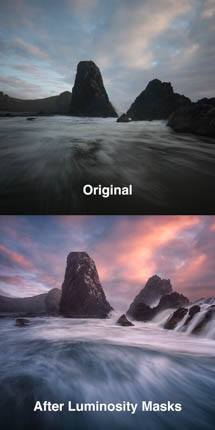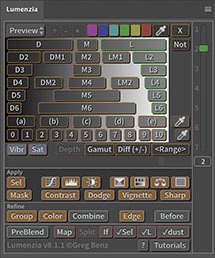A lot of new photographers ask me which camera gear they should buy. It’s a great question, and I always tell people to invest in photography travel and education before gear. I can’t think of a trip or a class I regret, but every time I get on Craiglist to sell something, I’m reminded of money I could have better spent on skills and experiences.
I’m going through reverse GAS (Gear Acquisition Syndrome). After years of clinging onto unnecessary purchases like Steve Martin in “The Jerk”, I’ve finally made a serious dent in slimming down my camera gear.
Let’s face it, probably every landscape photographer reading this is a gear junkie. Almost all of us either buy lots of equipment or lusts for it. There are of course exceptions, but I haven’t met too many.
I’ve certainly been in this camp for years. There are many reasons I’ve bought so much stuff over the years:
- I did a little bit of everything. I’ve shot 50 or so weddings, dozens of family photos, studio portraits, products, macro, sports, cityscape, and landscape. Some of these much more than others, but there are truly unique demands in each of these categories. This is a somewhat legitimate excuse for many purchases, but I probably could have approached things in a much simpler way. I could have rented some studio lights that I bought, used extension tubes instead of a dedicated macro lens, and so on.
- I didn’t know what I need. It’s easy to get overwhelmed when you can’t easily try different gear. I’d do a bunch of reading and research of course, but you can find someone willing to recommend just about anything you can buy. So while they might be great for figuring which 50mm lens is the best, very few of them really help you decide whether you should be buying any 50mm lens. That’s why I try to include my rationale and perspective on my gear page. What’s great for me might have no value for you.
- It was exciting. I’m a techy guy and I love figuring things out. I should have spent the time better figuring out the things I already had.
- I wanted the best possible images and thought more specialized gear would help. To a degree, this is true. But every extra thing you buy is one more thing to master, and that can hold you back.
- I wasn’t making hard choices. You can’t carry everything, so end up making more trade-offs for weight or specific functionality as you get more and more lenses. Having a few zoom lenses that can all accept the same 77mm ND filters has helped me get more great shots at the right focal length. And a lighter bag has encouraged me to explore and shoot more.
After a while, the clutter left from those poor choices started making the problem more and more obvious. So I decided to take stock of what I really use.
I bring the following gear on nearly all my trips:
- Nikon D850
- Nikon 16-35mm f/4 (I can’t remember the last time I left this at home; I particularly love how easy it is to shoot wide angle images with ND filters)
- Sigma Art 14mm f/1.8 (amazing for night skies and wide angle; I will leave this when I need to pack light)
- Nikon 80-400mm (great for abstracts and other long lens shots; I will leave this when I need to pack light)
- Really Right Stuff TVC-33 or TVC-24 tripod with BH-40 or Arca-Swiss Cube head and L-bracket for the camera
- Breakthrough ND filters (especially the 6-stop)
That left a lot of other gear gathering dust. Almost all of it is great stuff. But great gear doesn’t necessarily mean great for me. So I’ve sold equipment like:
- Sony a7Rii mirrorless camera and related lenses. All in, it’s a great camera and I would recommend it to anyone who wants mirrorless. But my experience kept pushing me back to my D850. The weight savings wasn’t as substantial as I’d hoped and I never got comfortable with the ergonomics and menu system. I struggled to get shots nearly as quickly as I can with my Nikon. I’m sure I could have improved quite a bit if I threw myself into it fully, but that’s part of the problem with too much gear. It doesn’t matter how great it is when you don’t give yourself enough time to master it.
- Nikon 105mm macro lens. I haven’t shot macros in years and I still have extension tubes I can use if needed.
- Nikon 16mm Fisheye lens. After correcting the image for distortion, the field of view is similar to my 14mm. I find panos work fine most of the time. And the old-school focusing mechanism on this lens is very jumpy in the cold of winter.
- Nikon 35mm f/2. This lens is beautifully sharp, small, and cheap. But the focus also jumps like crazy in the cold, and f/2 isn’t as wide as I’d like for night shots at this focal length.
- Nikon 24-70mm. The older version of this lens wasn’t as sharp as I want, the new one won’t take my 77mm filters, and I rarely need mid-range focal lengths.
- Studio and portable lighting gear. I haven’t had a good reason to keep so many soft boxes and strobes for years.
- And so many little gizmos I can’t even remember them. Cheap filters, extra camera bags,
I’m very lucky to have had the opportunity to make all these fun purchases, but I think I would have been better off investing in education or saving the money. And my life is simpler without the clutter.
So, what should you buy?
I don’t have a simple answer – I really can’t tell you what you should buy. Even if you want to shoot the same subjects as me, your needs will be different. You may already have lenses from another camera brand, a different budget, a number of other factors that would lead you down a different path. And my advice is fairly limited. I don’t review gear I haven’t personally used for some time. It takes a long time to see all the pros and cons of new equipment and learn how to use it in the best possible way.
What I can share is more general advice that I’ve learned from my experience:
- Invest in yourself first. A professional photographer with an iPhone and a plane ticket is probably going to make more compelling photos than the average person shooting with a top of the line camera. The gear is a very small part of the art of photography. It matters, but rarely as much as your skill and the subject you are shooting. Prioritize classes, workshops, and travel where possible. If budget is a limitation, just go shooting with the best photographers you can find (I second shot weddings for years to learn the ropes and it was an incredible education).
- Do not buy anything you won’t use in the next 30 days. When you get new gear, make sure you try serious shooting with it right away. If it doesn’t make a compelling difference, return it. If you make an impulse buy to take advantage of a sale, make sure you get out and try your new purchase right away. I could have saved a good chunk of change over the years by confronting the reality of a bad purchase immediately. This rule also forces you to think about whether you really “need” it.
- When it matters, don’t be cheap. If you can get the good enough performance and reliability from a cheaper brand, save the money. But if the quality matters, it’s better to buy the right product first rather than after wasting money on something that won’t meet your needs. I’ve spent a lot of money replacing cheap tripods and filters over the years in particular.
- If you aren’t using it, sell it. It’s painful to sell something for less than you paid. But the loss already occurred the moment you made a bad purchase, not when you finally admit it.
What do you think? What’s your advice for other photographers?

